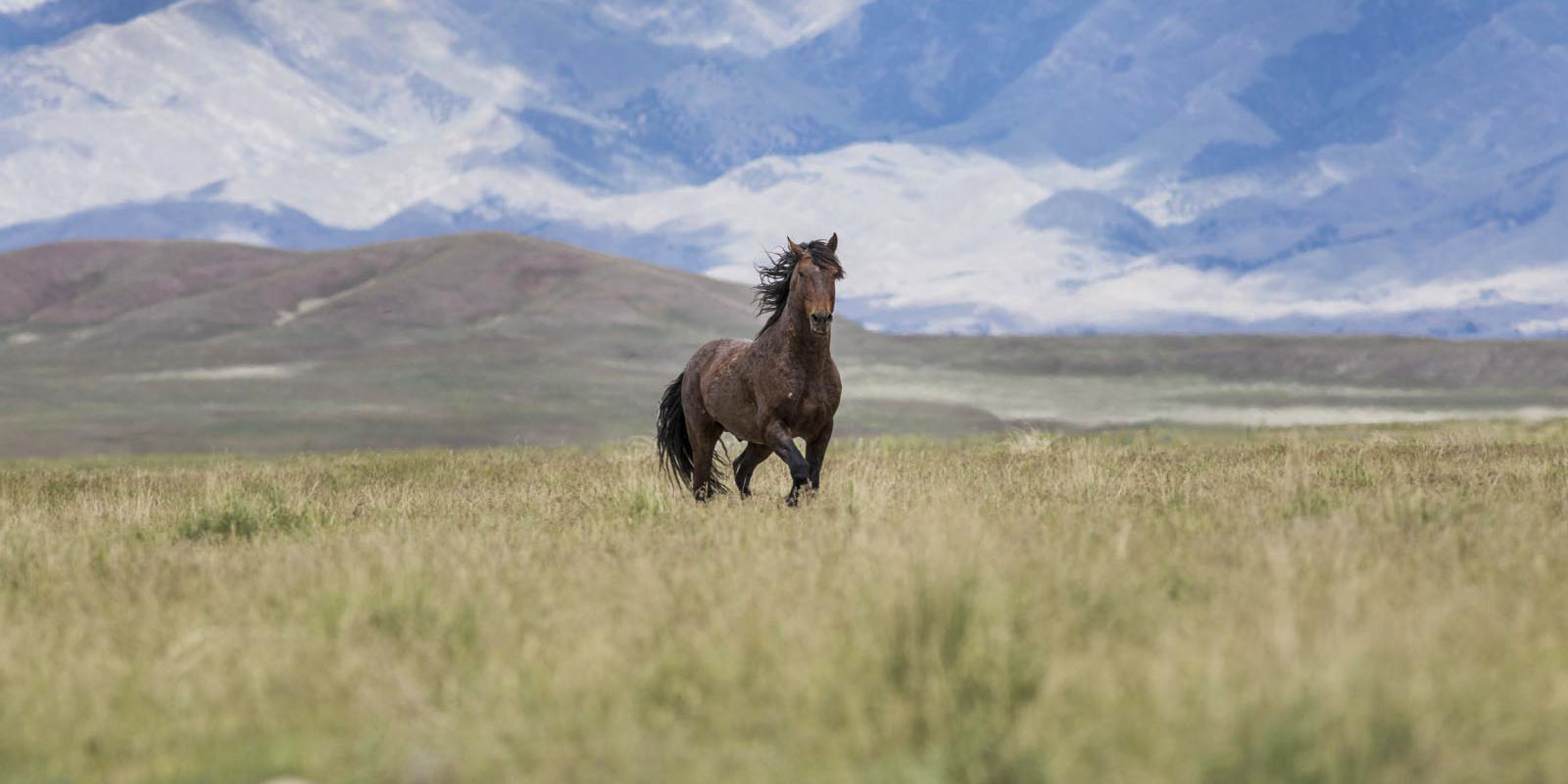September 24, 2018
The coalition says in the lawsuit filed Friday in the U.S. District Court for the District of Oregon that BLM has abandoned, without explanation, its obligation to test the "social acceptability" of the sterilization technique by "seriously limiting public access to observe and document" the experiment.
This is inconsistent with the Wild Free-Roaming Horses and Burros Act of 1971 and violates the National Environmental Policy Act and the Administrative Procedure Act, according to the 46-page complaint.
In addition, by placing a "sharp limitation on public observation of this government activity," BLM has infringed upon "the important newsgathering objectives that Plaintiffs aim to achieve by observing and documenting the BLM's treatment of federally protected wild horses, and thus violates Plaintiffs' rights under the First Amendment of the U.S. Constitution," the complaint says.
The research project, set to begin as early as next month, proposes to test a procedure — called ovariectomy via colpotomy — that involves removing the mares' ovaries. The surgeries on as many as 104 mares rounded up from the Warm Springs Canyon Herd Management Area in central Oregon would be conducted by contracted veterinarians familiar with the procedure at the Wild Horse Corral Facility near Hines (E&E News PM, Aug. 23).
The coalition — which includes the Cloud Foundation, American Wild Horse Campaign and Animal Welfare Institute — wants the court to throw out the public access restrictions, and to enjoin BLM "from taking any action to implement the wild horse sterilization experiments" until it has fully explored whether testing the procedure is socially acceptable to the public at large.
They note in the complaint that wild horse roundups off federal herd management areas "are open to public and media observation," and are generally covered by local and sometimes national media outlets.
But as for the sterilization tests, BLM "has refused to allow a meaningful opportunity for media or the public to observe and record these procedures," Nick Lawton, an attorney with Meyer Glitzenstein & Eubanks LLP, the Washington, D.C.-based public interest environmental law firm representing the coalition, said in a statement.
A 'standard' procedure
The lawsuit is the latest challenge for BLM as it struggles to manage nearly 82,000 wild horses and burros across roughly 27 million acres of federal herd management areas — roughly 55,000 more animals than the appropriate management level, or what regulators believe is the maximum number of horses and burros the rangeland can handle without causing damage to vegetation, soils and other resources.
BLM spends tens of millions of dollars every year to care for nearly 46,000 additional animals it has rounded up and placed in private holding pens and corrals. BLM has warned Congress that it could cost taxpayers $1 billion to care for these animals over their lifetimes.
With no natural predators, the fear is that current wild horse and burro populations could double in size over the next four or five years, a situation that would almost certainly lead to animals dying of starvation and lack of water.
It's not clear how the bureau will respond to the latest lawsuit. An Interior Department spokeswoman referred questions to the Department of Justice. Wyn Hornbuckle, a DOJ spokesman, said the department is "reviewing the complaint" and could not comment further.
In addition to Zinke, the lawsuit names as defendants Brian Steed, BLM's deputy director for policy and programs; Jamie Connell, BLM's Oregon-Washington state director; and Jeff Rose, manager of BLM's Burns district office in Oregon.
BLM last month released a draft environmental assessment and an unsigned finding of no significant impact that outlines the parameters of the project, which includes partnering with the U.S. Geological Survey to conduct a detailed behavior analysis of the spayed mares.
The coalition of plaintiffs claims in a press release accompanying the lawsuit that equine veterinarians have called the procedure to be tested "barbaric."
But BLM said in a press release this summer that the spay technique "is a standard used for domestic horses and is generally considered less invasive than a typical spay procedure used for domestic cats and dogs. The procedure takes fewer than 15 minutes to complete."
Issue 'fraught with litigation'
BLM two years ago abandoned a similar sterilization research project with Oregon State University to study the "safety and effectiveness" of three fertility control methods on mares after horse advocacy groups filed federal lawsuits challenging the work (E&E News PM, Sept. 9, 2016).
BLM has turned to other options, such as beefing up efforts to increase adoptions. And it recently updated its policy for selling wild horses and burros to make it easier to purchase bulk numbers of animals (E&E News PM, July 24).
Wild horse advocates want BLM to increase the practice of darting animals with fertility vaccines, specifically porcine zona pellucida, or PZP, which renders mares infertile for roughly a year.
While effective, it's not practical for BLM to annually round up and treat thousands of horses with PZP across vast herd management areas, critics say.
That's certainly the opinion of the Public Lands Foundation, a BLM retirees organization.
The foundation's board of directors this month approved a position statement on wild horse and burro management that recommends permanent sterilization as a way to stem "uncontrolled increases" of wild horses.
"Darting is not practical for administration of PZP on extensive areas with large numbers of horses," the position statement says.
The statement also recommends that horses held in holding pens and corrals that are not adopted "should be sold without limitation" to reduce herd sizes to appropriate management levels.
"Spaying mares via colpotomy has been demonstrated to be practical with wild horses on the Sheldon Wildlife Refuge in northeast Nevada," where more than 100 mares were spayed with a 1 percent mortality rate, the statement says.
But it also notes that BLM has "terminated" a number of other research projects due to litigation.
"The wild horse and burro program has been fraught with litigation," the statement says. "It appears that the litigants are opposed to all reductions in numbers [of wild horses] on the range."
But the horse advocates say in the legal complaint filed Friday that there is "tremendous public opposition" to the "proposed permanent sterilization" experiments BLM is planning in Oregon.


